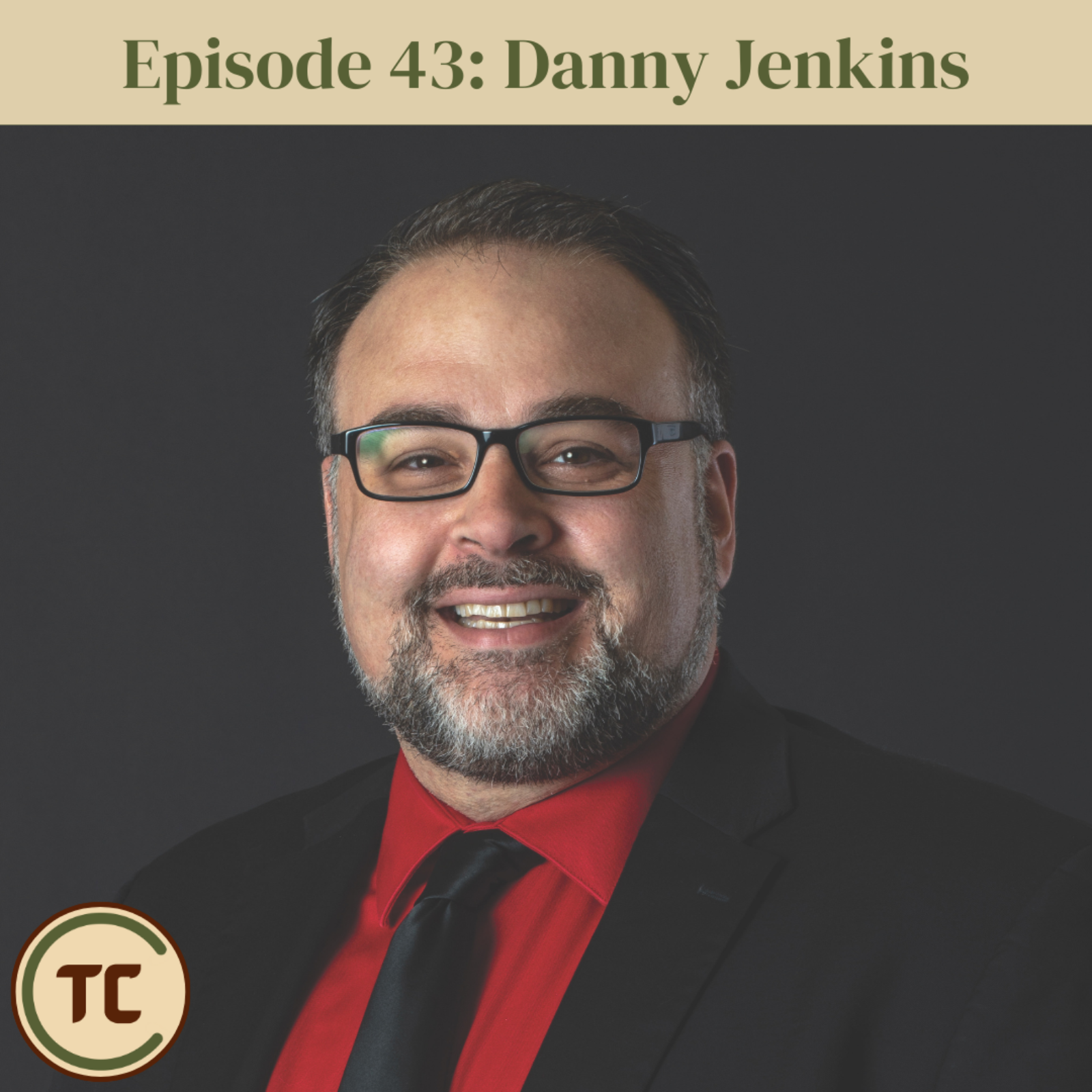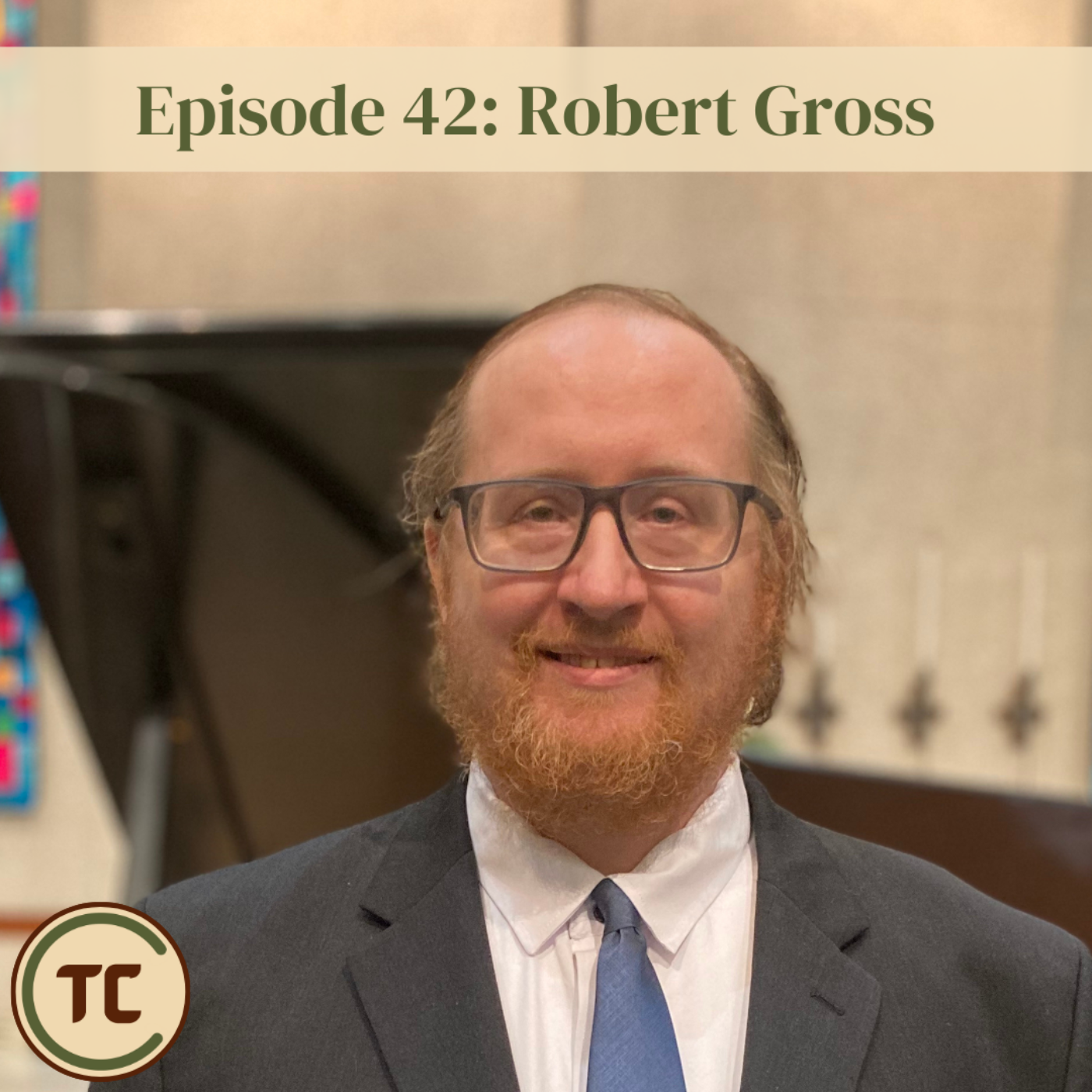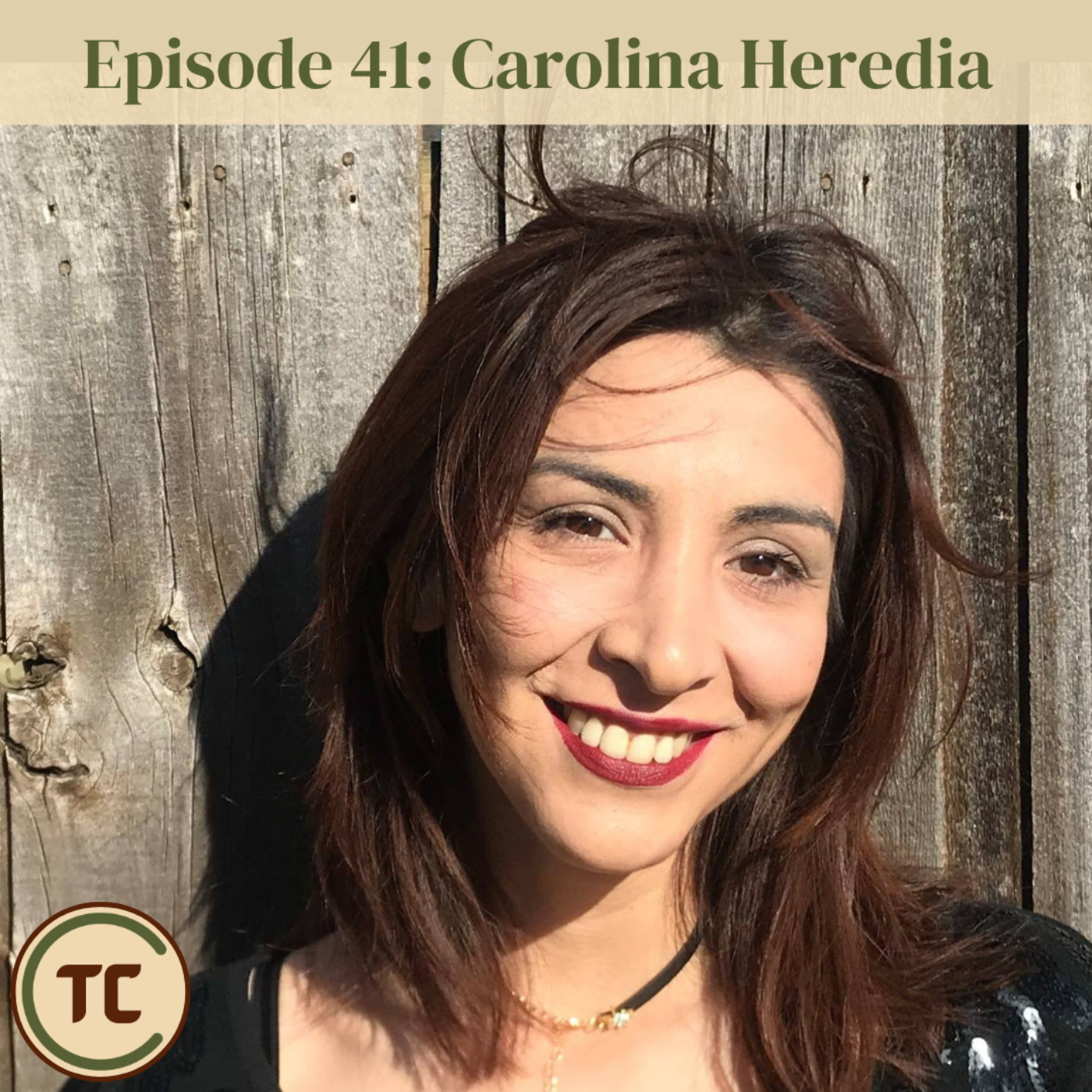TCC 1. Oceans Blooming - Justine de Saint Mars
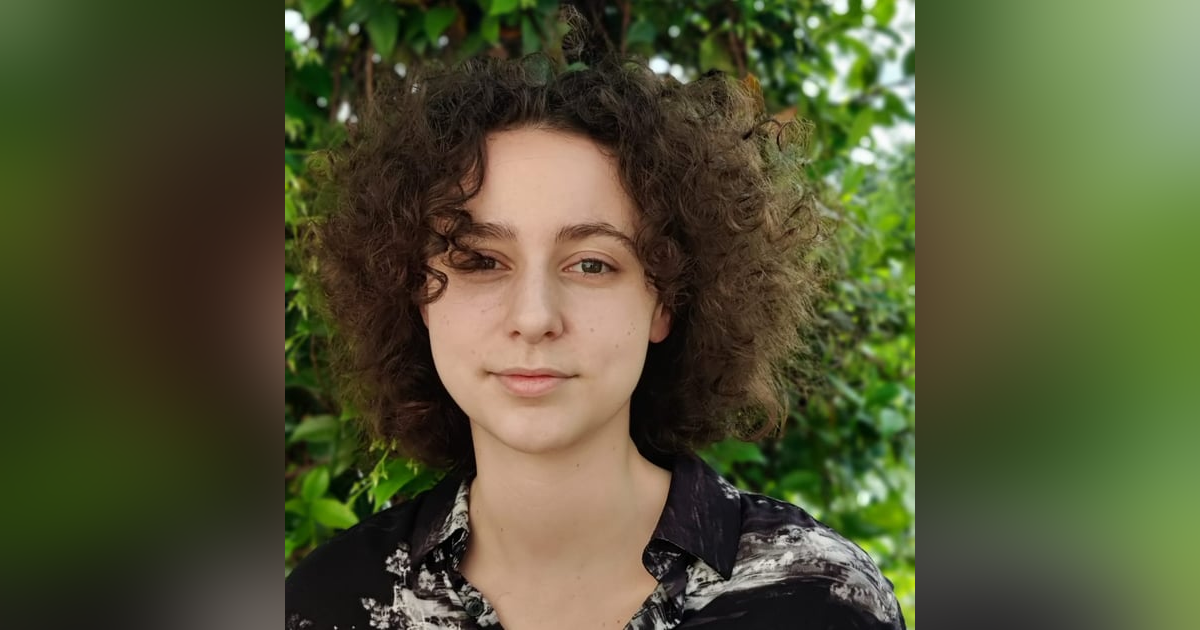
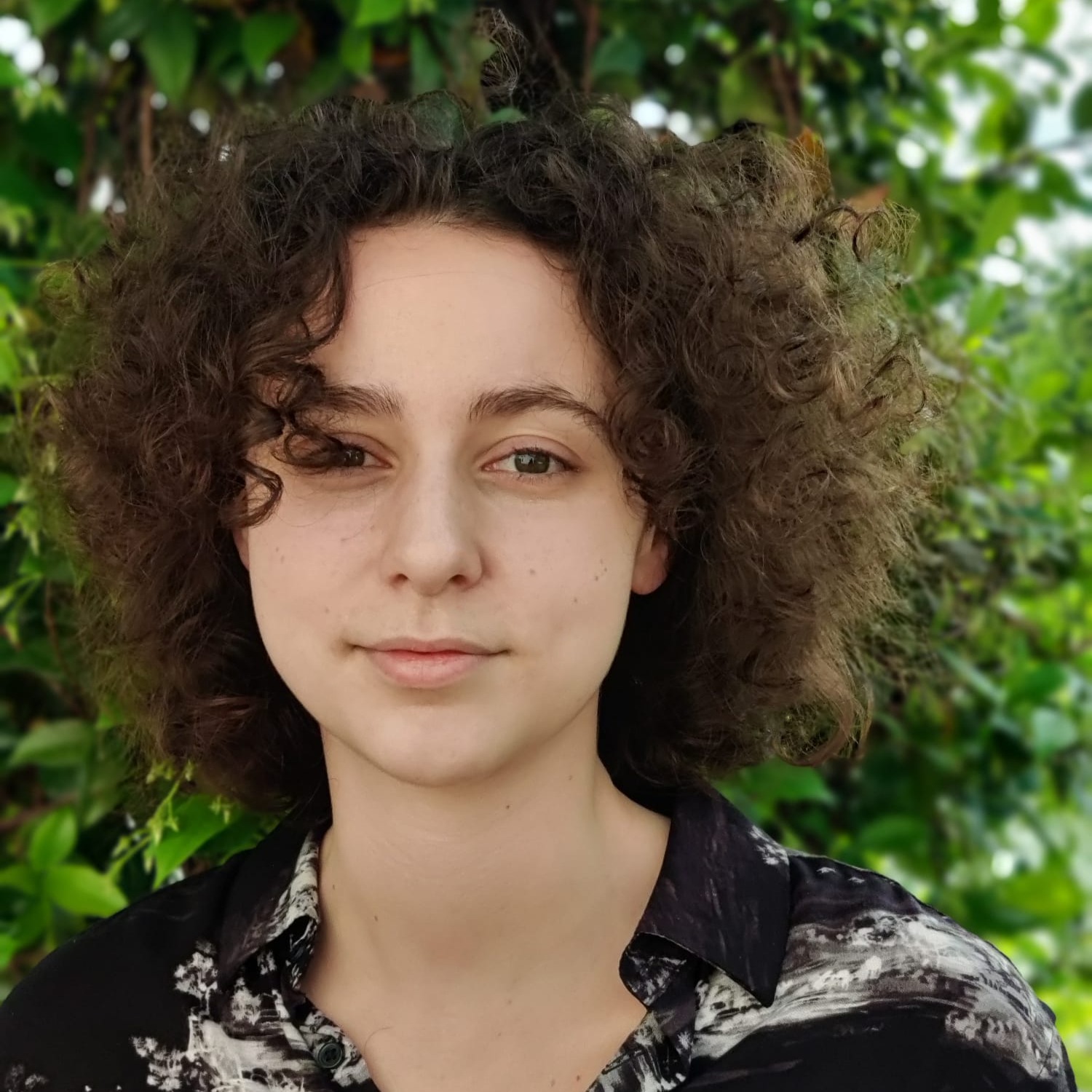
Featured on this episode of the Theorist Composer Collaboration is the composer Justine de Saint Mars and her piece, Oceans Blooming. We discuss her background, compositional process, Oceans Blooming, and her thoughts on the world of music theory and composition. Feel free to contact Justine for any comments, questions or inquiries through any of the linked means below:
Email: jdesaintmars@gmail.com
YouTube: https://www.youtube.com/channel/UCSMTp1u-6RQabWLjwzx8kzg
Facebook: https://m.facebook.com/justine.desaintmars
A full episode transcript is also available on our host website on the episode page at https://www.tccollaboration.com/
Make sure to follow the TCC social media accounts on:
Facebook: https://www.facebook.com/profile.php?id=61557900086297
Instagram: https://www.instagram.com/tc_collaboration/
Performance credits for Oceans Blooming:
Marimba: Ryan Boehme
For those interested, here is a link to the website for the composer mentioned in the episode, Jennifer Higdon: http://jenniferhigdon.com/
[Aaron] Hello and welcome to the first episode of the Theorist-Composer Collaboration, a podcast interview series highlighting modern composers and their compositions, alongside music theorists. My name is Aaron D'Zurilla, and I am a graduate music theory student at Florida State University, and I will be your host for today. The music that you were just hearing is an excerpt from the piece, Oceans Blooming, a piece for marimba and fixed electronics, and it will be the subject of today's episode
alongside its composer. Speaking of which, I am very excited to introduce to you the very first featured composer on the TCC series, Justine de Saint-Mars. How are you?
[Justine] I'm great, thanks, how are you?
[Aaron] A little bit nervous, being the very first part of this whole venture. Well, so Justine, go ahead and tell the audience about yourself, your background, professionally, personally, academically, whatever you choose.
[Justine] Sure. I was born in Australia, that's where I grew up, and I did most of my schooling in America though, so I did a bachelor's degree at Florida State University in composition, and I'm currently doing my master's degree in composition.
[Aaron] Which is of course where we know each other, we're classmates in a handful of things. So how would you describe yourself as a composer, and also your music, you know? How would you describe what you do?
[Justine] Sure. I like to describe it as neo-romanticism with Revel and Debussy influence, so I like to use a lot of impressionistic harmonies and flourishes and qualities, but still pretty romantic. It's like romanticism with the modern twist.
[Aaron] I know in our previous conversations also that you find some inspiration in film composition, in that world as well. Can you talk about that a little bit?
[Justine] Yeah, so that's my main interest in music, has been for a while, and it's what I want to do going forward as well. My favorite composers, Hans Zimmer, John Williams, Danny Elfman among many, they're the ones that I really listen to the most, and it's what I like my music to lean towards a bit as well. So it's definitely music that would gain something from a visual medium as well.
[Aaron] So now going to Ocean's Blooming, which is the piece that we're looking at today, this was already premiered, correct?
[Justine] Yes.
[Aaron] When was that?
[Justine] That was Spring 2023.
[Aaron] Spring 2023. And so, you know, you sent me the score and I was looking at the program notes and you were detailing some of the background or your inspiration for the piece, which was a trip to Indonesia. Can you speak about that?
[Justine] Sure. Over summer of 22, I think, I went to Indonesia to visit my dad who lives there, he works there. And while I was there, he took me around the country to these beautiful, beautiful beaches that were kind of away from the touristic areas that you would normally think of, like
Bali, it's on a completely different island, it's on Sulawesi. And that's just empty beaches with beautiful reefs, amazing snorkeling, sharks and snakes and fish everywhere. And just past the beach when you get onto land, there's these beautiful cliff sides with crazy amounts of jungle and so much green forestry. It's really something.
[Aaron] Awesome. Well, of course, we'll get to it in the analytical section, but that certainly is spoken to within the piece. And also I have to ask, who were the performers? So, Marimba and Fixed Electronics, of course, you had a percussionist and were you standing by making sure the Fixed Electronics didn't go hay-wire?
[Justine] Yes. So the first time it was played, the premiere, I didn't have a performer, so I played a fixed track with Mini Marimba, which was, you know, it's not the best, but I couldn't find a percussionist at that time. It was just a crazy time for everyone. The second time it was performed, I did have a Marimba player playing it and he did amazing. His name is Ryan Boehme, I think I'm saying that right. I'm not sure. But that was the second time it was performed and the electronics did go a bit haywire and I had to like run on stage and like turn the monitor down. It was too loud and it was crackling everywhere. It was a bit crazy, but you know, he got through it. It was fine.
[Aaron] Hey, look, a fixed anything with electronics is bound to have a little bit of messiness.
[Justine] I mean, the dress rehearsal went fine, so I don't know what was going on.
[Aaron] So about Marimba and Fixed Electronics, at least for me, you know, I'm not a composer, but I have not seen that instrumentation very often. So, can you speak to why you chose that orchestration?
[Justine] Sure. I've always I've always liked electronic music. And so I wanted to see what I could do with another instrument. And I was trying to think about what what two elements that I wanted to represent the sea and then the jungle and the wooden timbre of the Marimba fit really perfectly for what I wanted the jungle to be, you know, wood, trees. It makes sense.
And then the electronics have a more silky texture and they kind of just like lay under the electronics and then take over and then just like they all mesh together really well, I think.
[Aaron] Yeah. Going on to some of the observations I had. At the beginning of the piece, you know, the melody or the theme that's in the main Marimba
is what I would call, you know, like sequential in nature. Almost it's the pattern is pretty clear and it's pretty easy to follow. And looking at and listening to the harmony, how you had it structured, because then you had the accompaniment in the electronics. And I thought so I was trying to figure out what harmony you had going on. And it was it was I didn't, you know, make Roman numerals or chord symbols, but it was a maybe not common practice. I would say like in the old old style. But it was still they made sense with one another. And also you had fully voiced chords, but one thing that I really liked and I noticed was in the accompaniment, you had very wide spacing and particularly I found a focus on quintal and chordal, perfect fifths and perfect fourths in the accompaniment, especially in the lower range of the accompaniment. And it gave like I was talking about earlier that Debussy Ravel like impressionistic, almost planing sort of sense, especially when it would be parallel one after the other in the opening. And I know that if you do a vertical analysis, they're fully voiced chords. But the timbre, especially the timbral separation of the Marimba and the electronics really made it feel open and like this like harmonic stasis that you get with quintal and chordal harmony. Were you thinking about it that way? Was it just how what decision making process led to that kind of voicing and spacing?
[Justine] Yeah, I like to like to play with spacing to see what kind of differences it makes depending on how I voice chords like in a class to able to sound very different than if it's spread out, right. And my favorite way to voice chords at a piano is to have tenths in the left hand. So let's say we're doing C major, tenths in the left hand, so C to E in the tenth and then the fifth in the middle, which is G, and then having a second inversion in the right hand, so G, C, E. That's my favorite voicing of like any chord because it's just, it's great to just like move up and down, which is exactly what I did in Ocean's Blooming. Yeah, so with you said something about like harmonic progressions not being typical. What I tried to do with Ocean's Blooming, it's in C major and kind of in C major. I wanted to try to get as far away from C major as possible, but staying relevant. So the first sequence is C major, G minor, F major, C major, and then it goes into like A flat major and B flat major, E flat major, but it all kind of flows and makes sense together and we eventually end up back at C, which is it's like big roundabout way of just like going around some kind of circle of fourths or fifths.
[Aaron] Yeah, if I was sitting down and writing a class paper on this piece and I had to address what key it's in or the tonality, I probably wouldn't describe it in C major quite frankly, because you know when I was looking at the score and you of course listening to it, it goes all over the place, but looking at the score you had so many accidentals, it kind of reminds me of how some atonal composers would always just have it in C major and then write all the accidentals. I thought that's what you were doing, so I didn't see it as really in a key, like just localized key centers and those would change over time, which is essentially what you were describing.
[Justine] Right, it's not in a key signature, it just happens to start in C and it happens to end in C, I think, but like there's no real key.
[Aaron] So especially once you leave the area of what I would label as the introduction or at least the thematic, like the initial thematic presentation, if you want to call it that, there's a further development of the texture of the electronics and when listening to it and looking at the score, it again, you know I'm thinking about that conversation we're having about impressionistic Debussy, Ravel, and also quartal and quintal harmony, a lot of it seems, and you can of course, the point of this whole conversation is tell me what you're thinking with this, those different electronic fragments, it seems like you picked different patterns of intervals and spacings and then would put them parallel to one another creating like a cascading effect. How were you conceptualizing the different layers as it was developing?
[Justine] Sure, so I had the bass layer of the marimba melody and then I have an ostinato on top of it that switches between two or three different instruments. It starts with the live marimba part and then it switches over to a midi fixed marimba part to kind of keep the wooden texture but it's like slightly different and then it moves over to something a bit smoother but on top of that there's lots of moving things. I really just, the way I write music is not oh I'm gonna make this sequence go right here and this needs to go right there, it's oh this sounds good here, I'm gonna put it in, this sounds good flipped and in this instrument I'm gonna put it there and it all, it has to flow in my mind. If it doesn't sound like it's just one big thing going like this then I didn't do my job right.
[Aaron] Fair enough, you know that I think that's one of the most fun parts of talking with a composer in particular because as music theorists as you can probably tell from you know the way that I was seeing it, we see it as a structural mathematical oh they must have calculated this needs to go here and this needs to go there which you do mentally but that's not your intention to make it correct, it's so it sounds good right which has correlation to it being mathematical sometimes. See when I was first listening to this I thought you know for about two minutes in, I thought oh there's a lot of interesting stuff to talk about here but I kept getting hung up on the why the fixed electronics part because I thought you know I've heard similar soundscapes before with all acoustic instruments and I kept thinking critically why did Justine choose fixed electronics alongside marimba but then there was this moment about two and a half minutes or so in the piece around rehearsal B where just like wow. Like it just opens up completely and the electronics really come to show and it's just like not necessarily well it's a bloom, it's a blooming of sound. Can you talk about that development of the electronics, like working in an electronic realm and managing all those different layers?
[Justine] Yeah the point of this piece was to have an evolution, a bloom right so I chose electronics because I feel like there's no limitations, I can literally do anything with a computer, I can just make any sound I want, any kind of texture, any kind of pattern, there's no limitations of instrument ranges, there's no problems of blending because I can just mix it however I want to and I wanted to have this like ethereal sound but still have it grounded you know it's still about earth and not just like space you know because electronics kind of like get into space territory at certain points I tried to kind of stay away from that and try to get more water, water on earth.
[Aaron] You know, I hope you find this as a compliment, but you know one thing I was thinking about like imagery, you know, I've never been to such a place in the world so I'm not fortunate enough to like be visualizing that. Have you seen the newest Avatar movie, The Way of Water? So like, I'm thinking specifically the scenes where there's no dialogue and it's like that one son is like going around with that whale, or whatever, in open water and it's just this like, serene taking in all the beauty. And you know, you're right historically and just topically, in our ears when we hear further exploration and electronic music we immediately go to space probably because it's foreign to us like the electronic sounds, like you said there's very little limit on what you can do, but you know the ocean and its depths are is also very foreign to us. And maybe not quite as much as space but like that ethereal opening up is like just wonderment, and I would say another big thing of your piece that adds to that you know I was listening to it on these relatively nice headphones the panning that you had going on between the different elements also made it feel like you were getting your head dunked. Like you were just going further underneath the layers of sound. What is it like in a live performance medium to be dealing with, like how do you make sure that those panning effects having something in your left ear your right ear, how do you manage that in a live setting?
[Justine] Right, I mean, if you have a pair of stereo speakers in your live performance, for mine I had two tower Bose speakers and they had, just like switching you know, just like sending sound back and forth wherever the panning was so that worked pretty well and it works better if you sit in the middle of the concert hall and you like get even distribution of sound. But it tends to work pretty well, maybe not as well as in headphones because you know you're like actually all around the sound this way in headphones, but I think it works pretty well.
[Aaron] Justine, what does composition mean to you, and I mean this very loosely, you can take that question however you want.
[Justine] Okay, to me it's a form of self-expression. I'm sure it is to many others, it's a story sometimes it's just kind of music I recently wrote a piano quintet that was just, it was just music for music you know. I didn't have a story, there was no point, I just was like: cool let's write something for piano and strings. And then sometimes I like to tell a very deep story, a very personal story, it just depends on the music and really it's, it's what I want to hear in music today. I write what I would want to hear coming back to me.
[Aaron] Now, I'll ask you almost an inverse question, what does music theory mean to you as a composer, and you can be as honest as you want to be we've had classes together theory classes, so be as honest as you want that's the point of this.
[Justine] I think music theory is a fantastic tool for composers to use, I just don't think it always needs to be a rule to follow. I find myself analyzing my own music, I'm like: oh great this is like a one minor five progression, and like oh: this is this is a sequence and I'm like okay great I can recognize these things, and I can say let's do more of that there and you know it works. But I don't think about it when I'm composing it's not something that I need it, I have it consciously in my head to use but I don't feel like I need to use it all the time.
[Aaron] Fair enough. I would say there's that dangerous balance between having it and purposely using it, because like, for example, some of my observations here that I thought were very specific technical decisions were simply just, almost natural, intuitions that you had when you were writing
the music. And so I would say that that comes not just from your aural experience of listening to music for your life, lifetime, but also your theoretical know-how. But of course you weren't always thinking of that purposely, so there's that dangerous dance between those two things.
You've already kind of answered the question of how music theory, well how about this, in an academic setting, or even in a professional setting, how do you see right now music theory and composition working together and I mean how do you see it currently. And then how would you like to see it?
[Justine] Right, I mean, from my experience at Florida State University there's a bit of a disconnection between theorists and composers, you know, we really only interact in theory classes and then outside of classes I really never see them. We don't have any events together, we don't talk enough, there's really this disconnect and it would be interesting to have more of a connection. Like, let's see what composers can do with a theorist saying "these things are cool, you should put this in music" or like a composer saying well, "this is the point of the music you're missing this because you're doing too deep of an analysis" like something like that, something where like a theorist like you and a composer like me just kind of talk and discuss and we have really interesting back and forth that way.
[Aaron] Well you know I'm in support of that, that's why we're here. I agree with you, I agree with you there is certainly a disconnect, and I like the point that you had where when we do meet, it's during a theory class. Very seldom do we meet in a composition class, right, you come to our turf. All right, so how do you see the world of modern composition right now?
[Justine] Right, so, we've got a lot of like, experimentation happening right now but we've also got a lot of like revisitation of old music with the new spin. We've got like, let's take Jennifer Higdon. She's not necessarily an experimental composer, but she definitely is a new composer having this kind of tonal and thematic material that keeps coming back, which is a style of like older music, you know it's interesting we've got both of these things now which is fun. I mean, there's a whole spectrum but we've got both ends of it which is really interesting. It's not just one theme like the classical era, it was, it was clearly very much the classical era and it slowly evolved and now we've got a lot more variety.
[Aaron] And from going off of what you said earlier, about yourself, you would put your own self maybe a little bit closer towards the revisitation or reimagining of those older styles. And Jennifer Higdon is really cool. Have you heard her violin concerto?
[Justine] I don't think I have.
[Aaron] You know it won the Pulitzer Prize years ago I don't, in music, I don't remember which year but a great piece of music highly, highly recommend. I'm also violinist, so that's probably why I know it. So you know you said a bit earlier about film composition, or at least adaption of your music into physical, or visual, media where, where would you like to, I'm essentially asking your prospects for your future. You know, are you feeling like a DM in composition somewhere and what current projects are you working on?
[Justine] Sure, I'm not planning on getting a doctor in composition, that's not really where I want my path to take me. I am interested in film scoring and screen scoring and all that and currently I'm working on a feature film for a director from the Motion Picture School at FSU. Which is fun, it's an 80 minute horror film and I've started working on it and they need the music in four weeks which is a little stressful but yeah. I've thought it's great.
[Aaron] How long, is like if you were go to, how many minutes of music do you need to produce for that, it's an 80 minute film, is it yeah so like how long is your score going to be?
[Justine] Probably 50 minutes to an hour.
[Aaron] Oh all right, when is that due, you know, the timetable when that, now, you said your score is due in about four weeks, but when is the film going to be finished or at least into final stages of production?
[Justine] I don't know, I just know music deadlines.
[Aaron] And you're getting paid for that regardless, though right?
[Justine] We haven't discussed payment but I'm assuming no, it's more like a student, it's totally cool. Yeah, I'm not upset about this, this is great for me
[Aaron] Oh no, that, that's wicked cool. No I realize that that's really cool How could the audience best contact you for any questions inquiries any of those sort?
[Justine] Sure I mean, I have an email, as most people do. It's just jdstmars.gmail.com. I mean I have a YouTube channel if you want to leave a comment, I read all my comments.
[Aaron] And a note to the listeners, upon the release of this episode on our homepage there will be a tab at the top for contributors where all of Justine's information contact info and her bio will be as well in the description of the episode so you can contact her using any of those means. So, to wrap up this episode of the Theorist Composer Collaboration, I'm going to give the final note to you. Justine, if you were to say something to the audience about the field of music theory, composition, film music, music in general. Philosophically, specifically, what would you like to say?
[Justine] Okay we, we don't have music theory without composition and vice versa, we both kind of need each other in that regard and write music that is cool, yeah.
[Aaron] Music that is cool, I love that. Yeah, I feel like sometimes, sometimes we lose sight of that. I like that, music that is cool. All right, well that reaches us to the end of the inaugural episode of the Theorist Composer Collaboration. Again, my name is Aaron D'Zurilla and thank you very much Justine De Saint Mars for joining us and sharing your piece Ocean's
Blooming.
[Justine] Yeah, thank you.
[Aaron] This is Aaron again, and I want to thank you for listening to the first episode of the Theorist Composer Collaboration. I also want to thank Justine De Saint Mars again for joining the program as well if you could reach out to Justine to show her support in her creative endeavors, there will be a link in the episode description to her contributor page on our website, where you can find her contact information and bio. Please make sure to follow our Instagram, Facebook and email listing on our website homepage for updates and episode notification. You can listen to future episodes on our host website, Spotify, and I am happy to announce that we are now also available on Apple podcasts Amazon music and YouTube all of these social media and podcast links will be in the description of wherever you are listening. I'm also happy to announce that there will now be full episode transcripts available on the episode page of the host website a few hours after the initial upload, so please navigate there if you wish to see it. If you have any comments questions or inquiries feel free to comment on social media posts or use the contact page on our website. I am also very excited to promote our next guest Ky Nam Nguyen, and her piece titled: A Vietnamese Mother's Letter to Nixon. I sat down to talk with her earlier this week and the next episode featuring Ky Nam Nguyen, and her work will be posted hopefully early next week again this is Aaron and thank you for joining the TCC.

Theorist/TCC Founder
He/Him
Aaron D'Zurilla is the primary host and founder of the Theorist Composer Collaboration. With diverse research interests in both modern classical composition and rap, Aaron has presented work at the 2025 Indiana University Symposium of Research in Music, with a paper titled: “Guess Who’s Back: Narrative Subversions in The Death of Slim Shady (Coup De Grâce)". In a currently forthcoming presentation, Aaron will also present at the 2025 Analytical Approaches to World Musics Symposium on the Music Theories, Histories, Analysis, and the Musical Cultures of Asia, with a paper titled: "International and Personal Tragedy in "A Vietnamese Mother’s Letter to Nixon" (2023)". Aaron also has a forthcoming publication through SMT-Pod, titled: "Trauma and Vocal Timbre in Ellen Reid’s p r i s m (2019)"
Aaron holds a Bachelor's of Music in Music Theory from the University of Florida and a Master's of Music in Music Theory from Florida State University.
Contact:
acdzurilla@yahoo.com
941-773-1394

Composer
She/Her
Justine de Saint Mars always knew that she wanted to pursue music as her career. She studied piano and cello for many years, but it was composition that really spoke to her. She started her composition journey in early high school and decided a path for herself in that field. She was accepted to the music composition department at Florida State University for her bachelor's and master's degrees and found a passion for film scoring, hoping her studies will take her in that direction.
Contact:
jdesaintmars@gmail.com
4843199943





